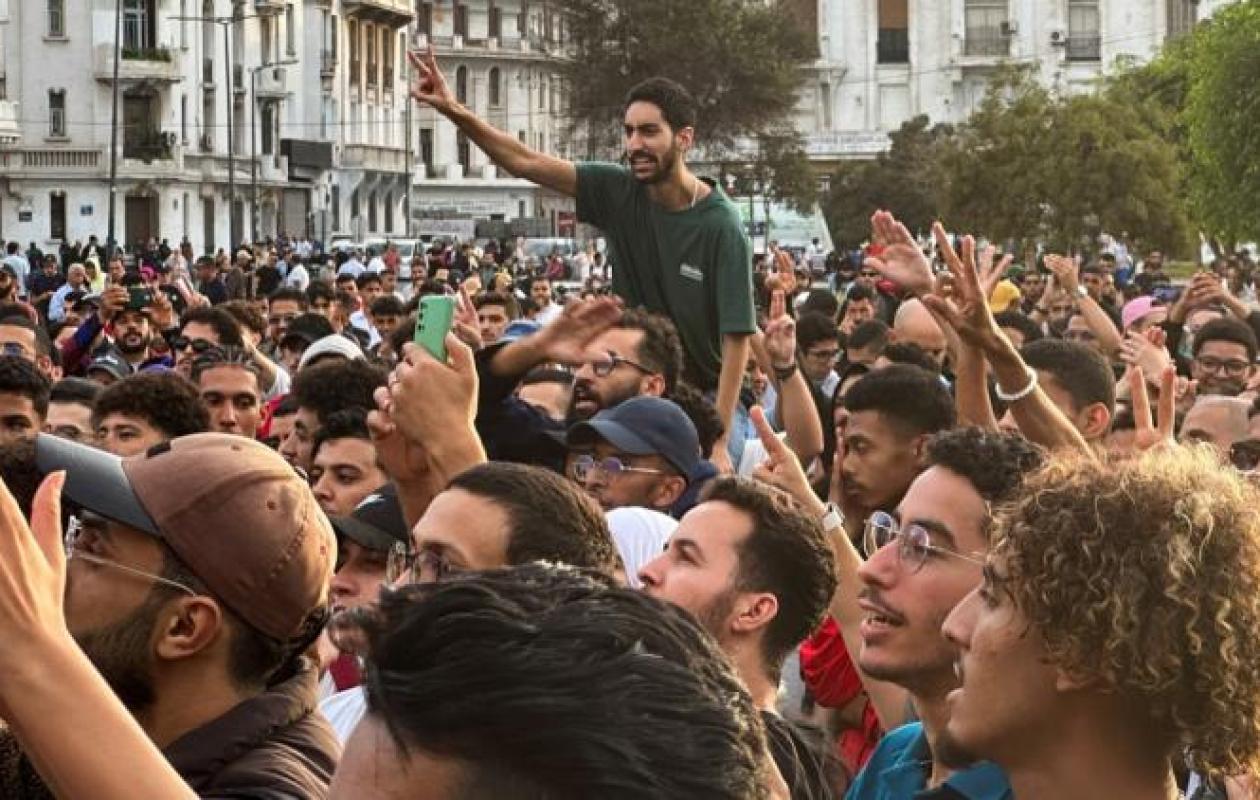
Maroc, Madagascar, Népal... Qu'est-ce que le mouvement «Gen Z» à l'origine de vastes manifestations à travers le monde ?
Following in the footsteps of Sri Lanka, the Philippines, and Nepal, thousands of young people are rising up in Madagascar and Morocco in a movement dubbed "Gen Z." Born between 1997 and 2012, they intend to challenge the authorities and demand greater social rights.
A whiff of popular revolution? Since 2022, a series of uprisings led by Generation Z, born between the late 1990s and early 2010s, has shaken the aging and sometimes corrupt elites of several countries in the "global south." After sweeping away the Nepalese government in early September and recently rocking the Philippines, the wave of protests has now crossed the borders of the Asian continent to reach Madagascar and Morocco. Each time, the demands are similar, with a backdrop of social anger and digital solidarity.
In 2022, young Sri Lankans launched a movement to successfully overthrow the Rajapaksa clan, which had been in power for nearly 20 years. In 2024, Bangladeshis took over, ousting Prime Minister Sheikh Hasina, who had clung to power for 15 years, in six weeks. Nepalese youth then took just two days to bring down their government. Each time, the profile of the protesters is the same: young people, most of whom are no older than twenty, who are part of what is known as Generation Z: those children born between 1997 and 2012, hyper-connected and raised with the internet.
At least 22 dead in Madagascar
In their words, as in the pirate flag from the manga "One Piece" that serves as their rallying sign, Malagasy Gen Z protesters in Antananarivo are claiming the influence of the "wind of change," particularly from Nepal, in the protests engulfing the island. While the demonstrations have left at least 22 dead, the protesters refuse to give up, and their demands now go beyond simply being fed up with the incessant water and electricity cuts. They are now calling for the resignation of President Andry Rajoelina, who has promised in response the appointment of a new prime minister, expected to implement reforms for the island.
And for good reason: in 2022, 75% of Madagascar's population lived below the poverty line of 4,000 ariary per person per day—less than 0.8 euro cents at current exchange rates—according to the World Bank. Moreover, young people represent the overwhelming majority of the island's inhabitants, according to UNICEF. Some 20.9 million of the nearly 30 million Malagasy were under 30 years old in 2023. "Many of you are wondering who Generation Z is. We are just young people ready to change the history of Madagascar," explains one of the movement's young spokespersons.
Moroccan youth in the streets
The same observation is being made in Morocco. The Moroccan youth collective "GenZ 212," created using the country code "212" and boasting nearly 150,000 members on Discord, called for the government's resignation overnight from Thursday to Friday, following a sixth consecutive evening of demonstrations for better health and education services, marked by deadly violence on Wednesday. These social demonstrations follow protests that began in mid-September in several cities after the deaths at the Agadir public hospital of eight pregnant women admitted for cesarean sections.
This Moroccan offshoot of the movement describes itself as a group of "free youth" with no political affiliation who demand "a space for discussion" on issues such as "health, education, and the fight against corruption." It claims to act out of "love for the country and the king" in a country marked by profound inequalities, both territorial and between the public and private systems. "We demand the dissolution of the current government for its failure to protect the constitutional rights of Moroccans and respond to their social demands," GenZ 212 said in a statement addressed to the King of Morocco, Mohammed VI.
The kingdom, which will co-host the 2030 World Cup with Spain and Portugal, has embarked on vast infrastructure projects: building new stadiums, expanding the high-speed rail network, and modernizing several airports. "We want hospitals, not just stadiums," youths in Rabat repeated Thursday, a slogan they have been using since the beginning of their protest. Hundreds more marched in Casablanca and Agadir, holding the same message.
A flag as an emblem
In all these countries, one emblem has emerged. The pirate flag of Luffy, the hero of One Piece, the best-selling manga in history, has emerged in just a few weeks as the symbol of this generation of young protesters. First brandished in Indonesia in August by citizens in protest against the government, this skull wearing a straw hat was taken up by protesters in Nepal in mid-September, before being displayed in Morocco and Madagascar. "Luffy is the one who liberates the people, who fights against a corrupt government," young protesters explain.
Commentaires (3)
Participer à la Discussion
Règles de la communauté :
💡 Astuce : Utilisez des emojis depuis votre téléphone ou le module emoji ci-dessous. Cliquez sur GIF pour ajouter un GIF animé. Collez un lien X/Twitter, TikTok ou Instagram pour l'afficher automatiquement.